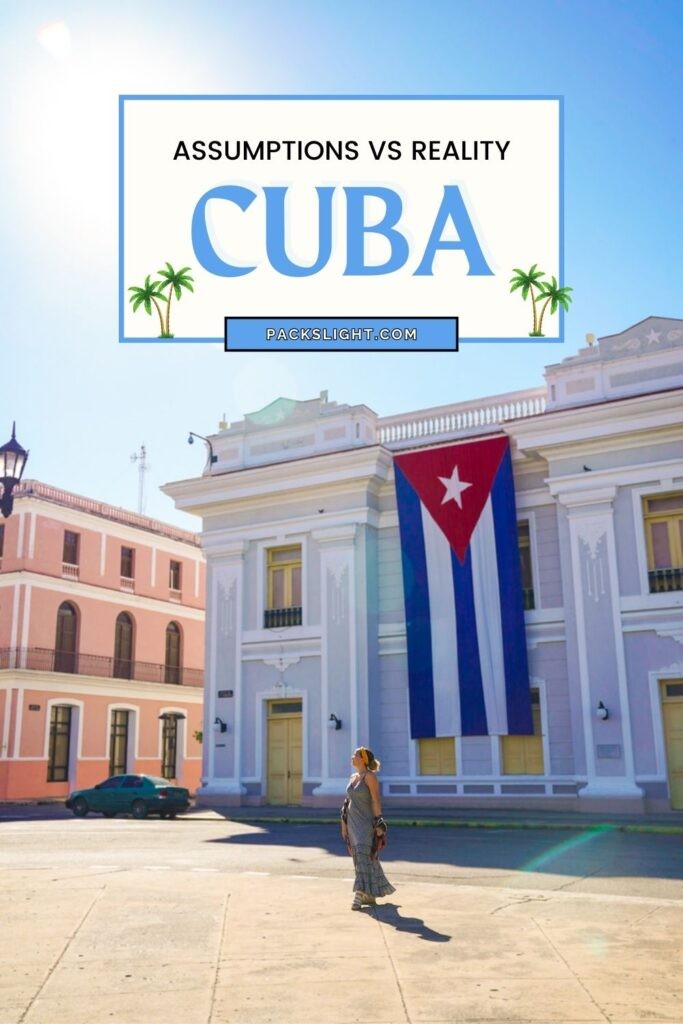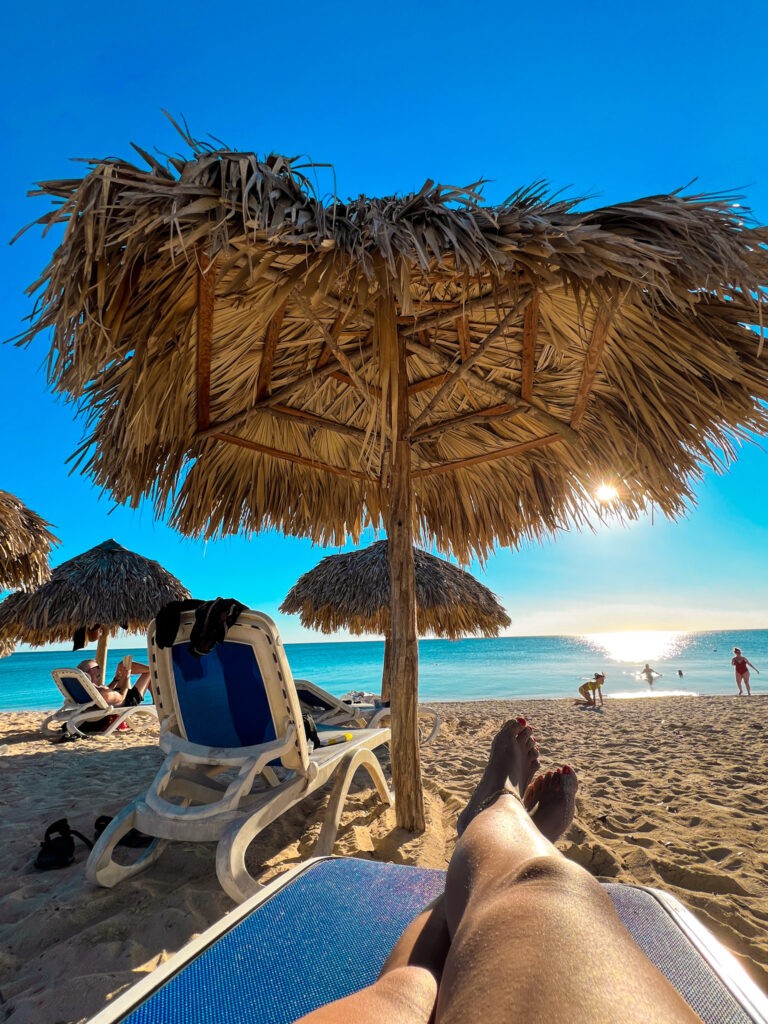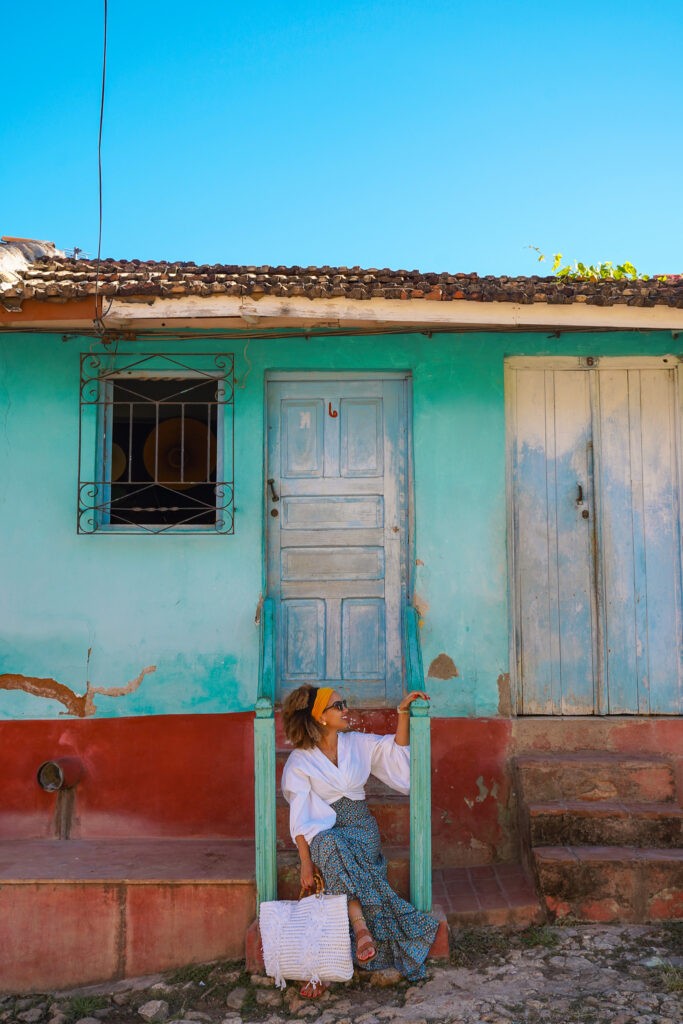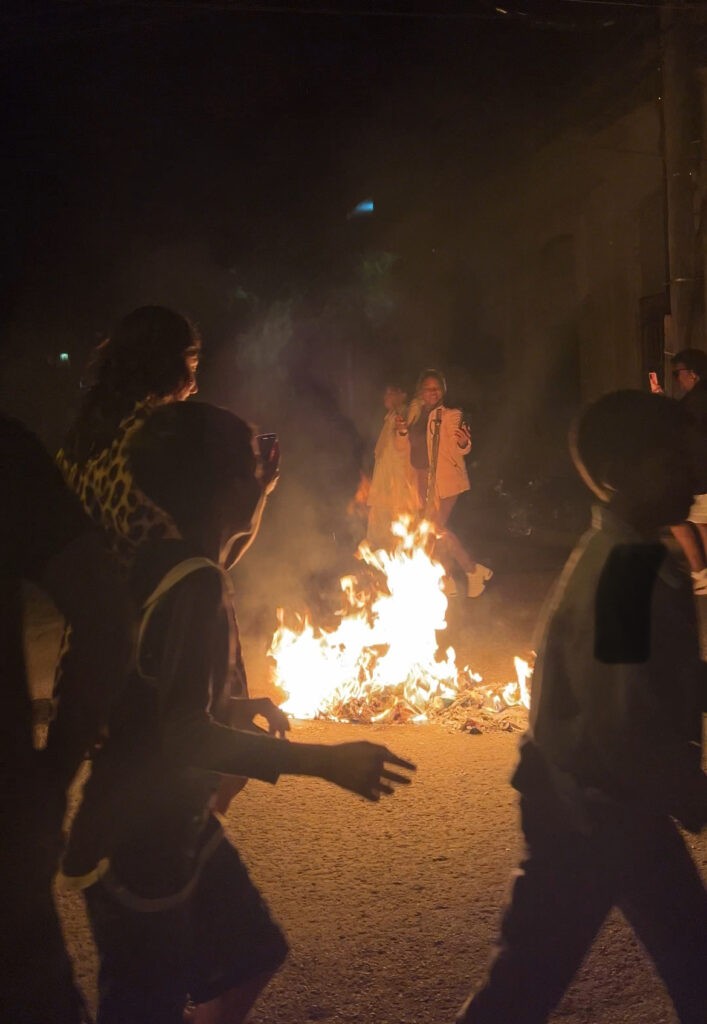Planning a trip to Cuba in 2024? SIXT.VN can help you navigate the realities of Cuba tourism, offering insights and services to ensure a smooth and enriching experience. Discover the truth about Cuban visas, beaches, food, and culture, and let SIXT.VN be your guide to unforgettable Cuba travel and Cuban adventures with seamless travel planning.
1. Is It Difficult for Americans to Visit Cuba in 2024?
No, it’s not as difficult as you might think. While there are specific regulations for American citizens visiting Cuba, the process is straightforward. Contrary to popular belief, Americans can visit Cuba legally by adhering to the “Support for the Cuban People” general license. This involves engaging in activities that directly benefit the Cuban people, such as staying in private accommodations (casas particulares), eating at privately-owned restaurants (paladares), and participating in cultural exchanges. According to the U.S. Department of Treasury, these activities promote independent economic activity, supporting the Cuban people and fostering meaningful interactions. Planning your trip with a reputable tour operator or travel agency familiar with these regulations can streamline the process.
-
Visa Requirements: Obtain a Cuban Tourist Card (visa) before your trip. Many airlines sell these at the departure gate for around $50-$100 USD.
-
Supporting the Cuban People: Engage in activities that support local businesses. This could include staying at Cuban-owned guesthouses, dining at paladares, and purchasing goods from local artisans.
-
Record Keeping: Keep records of your activities in Cuba, as you may be asked to provide them upon return to the U.S.
 Pink Cuban visa on boarding pass
Pink Cuban visa on boarding pass
1.1. Do I Need a Special Visa to Visit Cuba as an American?
Yes, Americans need a Cuban Tourist Card (visa), but it’s easily obtainable. The Cuban Tourist Card is different from a regular visa; it’s a two-part card that you can often purchase right before your flight from most airlines flying to Cuba. You fill out your information, and Cuban immigration officials stamp it upon arrival. You must keep this card until you depart Cuba. According to the U.S. Embassy in Cuba, this card allows for a stay of up to 30 days.
1.2. Will a Cuba Visit Affect My Travel to Other Countries?
No, a visit to Cuba will not affect your travel to other countries. Cuba does not stamp passports. Instead, they stamp the Cuban visa, which you keep until you leave the country. Ensure you retain your visa card until departure, as it will be required when you leave the country. This approach avoids any potential issues with countries that may have restrictions related to travel to Cuba.
1.3. Can SIXT.VN Help Me Organize My Trip to Cuba?
Yes, SIXT.VN offers services to help organize your trip to Cuba, ensuring compliance with all regulations. SIXT.VN can assist with booking accommodations at casas particulares, arranging transportation, and suggesting activities that qualify under the “Support for the Cuban People” license. This ensures that your visit is not only enjoyable but also supports the local Cuban economy. Contact SIXT.VN at +84 986 244 358 for personalized assistance.
2. Is Cuba Worth Visiting Compared to Other Caribbean Destinations?
Yes, Cuba is worth visiting because it offers a unique blend of cultural richness, historical significance, and natural beauty that sets it apart from other Caribbean destinations. According to UNESCO, Cuba has nine World Heritage Sites, reflecting its rich history and cultural diversity. While other Caribbean islands offer beautiful beaches and resorts, Cuba provides a more immersive experience, allowing travelers to step back in time and witness a country undergoing significant transformations.
- Historical Significance: Explore Havana’s Old City, a UNESCO World Heritage site, with its well-preserved colonial architecture.
- Cultural Experiences: Immerse yourself in Cuba’s vibrant music and dance scene, from traditional son to contemporary reggaeton.
- Natural Beauty: Discover Cuba’s diverse landscapes, from the Viñales Valley’s tobacco farms to the pristine beaches of Varadero and Cayo Coco.
 Playa Ancon, Trinidad beach in Cuba
Playa Ancon, Trinidad beach in Cuba
2.1. How Big Is Cuba Compared to Other Caribbean Islands?
Cuba is the largest island in the Caribbean, offering diverse landscapes and experiences. Cuba’s size, approximately 42,426 square miles (109,884 square kilometers), allows for a wide range of experiences, from bustling city life in Havana to tranquil countryside in Viñales. This size advantage means you can experience diverse landscapes, urban adventures, and serene beaches all in one trip.
2.2. What Makes Cuba Different From Other Caribbean Destinations?
Cuba’s unique history, culture, and political system make it distinct from other Caribbean destinations. The blend of Spanish colonial architecture, vintage American cars, and socialist ideals creates an atmosphere unlike any other. According to the Cuban Ministry of Tourism, the island receives millions of visitors each year, drawn by its unique charm and appeal.
2.3. Can SIXT.VN Help Me Plan a Unique Cuban Experience?
Yes, SIXT.VN can tailor your Cuban experience to ensure it’s unique and memorable. SIXT.VN offers personalized itineraries that include visits to historical sites, cultural events, and natural attractions, ensuring you experience the best of Cuba. We focus on providing authentic experiences that go beyond the typical tourist trail. Visit SIXT.VN to explore our custom tour options.
3. Are Cuban Beaches Worth Visiting?
Yes, Cuban beaches are worth visiting, offering pristine sands and crystal-clear waters. Despite some misconceptions, Cuba boasts some of the most beautiful beaches in the Caribbean. According to TripAdvisor, Varadero Beach is consistently ranked among the top beaches in the world.
- Varadero: Known for its white sands and turquoise waters, Varadero offers all-inclusive resorts and water sports activities.
- Playa Ancón: Located near Trinidad, Playa Ancón is a tranquil beach with calm waters and opportunities for snorkeling and diving.
- Cayo Coco and Cayo Guillermo: These islands offer secluded beaches with abundant marine life, perfect for diving and relaxation.
 Playa Ancon, Trinidad beach in Cuba
Playa Ancon, Trinidad beach in Cuba
3.1. Are All Cuban Beaches Rocky?
No, not all Cuban beaches are rocky. While some areas have rocky shores, many beaches offer soft, white sand and clear waters. Playa Ancón, near Trinidad, is a prime example of a stunning, sandy beach. These beaches provide a perfect setting for relaxation and water activities.
3.2. What Are Some of the Best Beaches to Visit in Cuba?
Some of the best beaches to visit in Cuba include Varadero, Playa Ancón, and the beaches on Cayo Coco and Cayo Guillermo. Each offers unique attractions and amenities, catering to different preferences. For instance, Varadero is known for its resorts and lively atmosphere, while Cayo Coco offers more secluded and tranquil settings.
3.3. Can SIXT.VN Arrange Beach Excursions for Me?
Yes, SIXT.VN can arrange beach excursions to Cuba’s most beautiful shores. SIXT.VN offers transportation to and from the beaches, as well as organized activities such as snorkeling, diving, and boat tours. This ensures a hassle-free and enjoyable beach experience. Contact SIXT.VN at +84 986 244 358 to book your beach getaway.
4. Is Cuban Food Bland and Unappealing?
No, Cuban food is not bland; it offers a rich tapestry of flavors influenced by Spanish, African, and Caribbean cuisines. While it may not be as spicy as some other Latin American cuisines, Cuban food is hearty and flavorful. Many dishes feature fresh, local ingredients, reflecting the island’s agricultural heritage. According to culinary experts, Cuban cuisine emphasizes slow cooking and simple preparations that highlight the natural flavors of the ingredients.
- Ropa Vieja: Shredded beef stewed in a tomato-based sauce with onions, peppers, and spices.
- Moros y Cristianos: A classic dish of black beans and rice, often served with meat or vegetables.
- Tostones: Twice-fried plantains, a popular side dish.
- Seafood: Fresh lobster, shrimp, and fish are abundant in coastal regions.
4.1. What Are Some Typical Cuban Dishes I Should Try?
Some typical Cuban dishes you should try include Ropa Vieja, Moros y Cristianos, and Tostones. These dishes represent the heart of Cuban cuisine and offer a taste of the island’s culinary traditions. They reflect the blend of cultures and ingredients that make Cuban food unique.
4.2. Are There Farm-to-Table Restaurants in Cuba?
Yes, there are many farm-to-table restaurants in Cuba, especially in the countryside. These restaurants, often called paladares, offer fresh, locally sourced ingredients and authentic Cuban flavors. They provide a unique dining experience that supports local farmers and sustainable agriculture. According to travel guides, these establishments often offer some of the best and most authentic Cuban meals.
4.3. Can SIXT.VN Recommend Good Restaurants in Cuba?
Yes, SIXT.VN can recommend excellent restaurants in Cuba. SIXT.VN has a curated list of top-rated paladares and restaurants, ensuring you experience the best of Cuban cuisine. From traditional dishes to modern interpretations, we can guide you to the perfect dining experience. Visit SIXT.VN for restaurant recommendations and reservations.
5. Is Cuban Spanish Difficult to Understand?
No, Cuban Spanish is not particularly difficult to understand for those familiar with basic Spanish. While it has its own accent and slang, it is generally clear and comprehensible. Knowing Spanish will greatly enhance your experience in Cuba, allowing for deeper connections with locals and a more immersive cultural experience. Language experts note that Cuban Spanish shares many similarities with other Caribbean dialects.
- Basic Spanish: Knowing basic Spanish phrases will be very helpful.
- Local Slang: Be open to learning some Cuban slang for a richer cultural experience.
- Communication Apps: Use translation apps to help bridge any communication gaps.
5.1. Will Knowing Spanish Help Me in Cuba?
Yes, knowing Spanish will significantly enhance your experience in Cuba. While some Cubans in tourist areas may speak English, knowing Spanish will allow you to communicate more easily with locals, explore off-the-beaten-path destinations, and gain a deeper understanding of Cuban culture. Speaking Spanish opens doors to more profound interactions and experiences.
5.2. Are There English-Speaking Guides Available?
Yes, English-speaking guides are available in Cuba, especially in tourist areas. SIXT.VN can arrange for knowledgeable, English-speaking guides who can provide insights into Cuban history, culture, and daily life. These guides can enhance your understanding and appreciation of the island.
5.3. Can SIXT.VN Provide Translation Services?
Yes, SIXT.VN can provide translation services to help you communicate effectively in Cuba. SIXT.VN offers access to translators who can assist with everything from basic interactions to more complex conversations. This ensures that language barriers do not hinder your travel experience. Contact SIXT.VN at +84 986 244 358 for translation services.
6. Are Cubans Disconnected From the World?
No, Cubans are not disconnected from the world, although internet access can be limited and expensive. While access to the internet has been restricted in the past, it has been expanding in recent years. Many Cubans now have access to social media and online news sources, especially in urban areas. According to recent reports, the Cuban government has been working to improve internet infrastructure and access across the island.
- Wifi Access: Major hotels and tourist areas often have wifi access, though it may require purchasing a wifi card or SIM card.
- Mobile Data: SIM cards with data are available for tourists, allowing for internet access on the go.
- Social Media: Many Cubans, particularly younger generations, are active on social media platforms.
 Cuba is beautiful, rough, raw, resilient, complex
Cuba is beautiful, rough, raw, resilient, complex
6.1. How Can I Access the Internet in Cuba?
You can access the internet in Cuba by purchasing a wifi card or SIM card. Wifi cards can be purchased at ETECSA offices (the Cuban telecommunications company) and hotels. SIM cards are available at the Havana airport and other locations. Keep in mind that internet access may be slower and more expensive than what you are accustomed to.
6.2. Do Cubans Use Social Media?
Yes, many Cubans use social media, especially younger generations. Despite the challenges of internet access, social media platforms like Facebook, Instagram, and WhatsApp are popular among Cubans for communication and information sharing. The increasing availability of mobile data has further fueled social media usage.
6.3. Can SIXT.VN Provide Information on Internet Access?
Yes, SIXT.VN can provide up-to-date information on internet access in Cuba. SIXT.VN offers details on where to find wifi hotspots, how to purchase wifi cards or SIM cards, and tips for staying connected during your trip. We aim to ensure you have the information you need to stay in touch with family and friends. Visit SIXT.VN for the latest updates on internet access.
7. Are Tourists Watched Under a Microscope in Cuba?
No, tourists are generally not watched under a microscope in Cuba. While Cuba has a socialist government, tourists are typically free to explore and interact with locals without excessive surveillance. The focus is more on regulating businesses and ensuring compliance with regulations than on monitoring individual tourists. However, it is always wise to be respectful of local customs and laws.
- Respect Local Laws: Be aware of and respect Cuban laws and regulations.
- Engage Respectfully: Interact with locals respectfully and engage in cultural exchanges.
- Use Common Sense: As with any travel destination, use common sense and be aware of your surroundings.
7.1. Is It Safe to Travel in Cuba?
Yes, it is generally safe to travel in Cuba. Cuba has a low crime rate compared to many other countries in the region. However, petty theft can occur, particularly in tourist areas. It is advisable to take normal precautions, such as keeping an eye on your belongings and avoiding poorly lit areas at night. The U.S. Department of State advises travelers to be aware of their surroundings and take basic safety precautions.
7.2. Are There Many Police in Cuba?
While there is a police presence in Cuba, it is often less visible than in many other countries. Security guards are more commonly seen, particularly at tourist attractions and hotels. The Cuban government places a high priority on maintaining order and ensuring the safety of tourists.
7.3. Can SIXT.VN Provide Safety Tips for Cuba?
Yes, SIXT.VN can provide safety tips for traveling in Cuba. SIXT.VN offers practical advice on how to stay safe, avoid scams, and navigate common tourist situations. We prioritize your safety and well-being, ensuring you have a secure and enjoyable trip. Contact SIXT.VN at +84 986 244 358 for safety advice.
8. Do Cubans Hate Americans?
No, Cubans generally do not hate Americans. Despite the complex political relationship between the U.S. and Cuba, many Cubans are curious about and welcoming to American visitors. They often distinguish between the U.S. government and the American people, holding no personal animosity towards individual tourists. The economic benefits that tourism brings to the island are also widely appreciated.
- Cultural Exchange: Engage in respectful cultural exchanges with Cubans.
- Open Mindedness: Approach interactions with an open mind and a willingness to learn.
- Positive Interactions: Many Cubans are curious and friendly towards American tourists.
8.1. How Are American Tourists Treated in Cuba?
American tourists are generally treated well in Cuba. Cubans are known for their hospitality and warmth, and they often welcome tourists from all over the world. While there may be occasional curiosity or questions about U.S. policies, most interactions are positive and friendly.
8.2. What Can I Do to Be a Respectful Tourist?
To be a respectful tourist in Cuba, it is important to learn about Cuban culture, respect local customs, and support local businesses. Engage in meaningful conversations with Cubans, show an interest in their lives and experiences, and avoid making assumptions or generalizations. By being a thoughtful and considerate traveler, you can foster positive relationships and contribute to a more authentic cultural exchange.
8.3. Can SIXT.VN Provide Cultural Sensitivity Training?
Yes, SIXT.VN can provide cultural sensitivity information to help you navigate interactions in Cuba. SIXT.VN offers insights into Cuban customs, etiquette, and social norms, ensuring you are well-prepared to engage respectfully with locals. We believe that understanding and respecting local culture enhances your travel experience. Visit SIXT.VN for cultural sensitivity tips.
9. What Are Cuban New Year’s Eve Celebrations Like?
Cuban New Year’s Eve celebrations are unique, combining family traditions with cultural rituals. Unlike the large, commercialized celebrations in some other countries, Cuban New Year’s Eve is more intimate and community-oriented. Traditions often include cleaning the house, throwing water out the door to symbolize washing away the old year, and burning effigies to represent letting go of the past. These traditions reflect a blend of Spanish, African, and Cuban influences.
- Family Gatherings: New Year’s Eve is typically celebrated with family and close friends.
- Rituals and Traditions: Expect to see unique rituals such as throwing water out of windows and burning effigies.
- Community Celebrations: In some neighborhoods, you may find community celebrations with music and dancing.
 Dancing around the burning dolls in Cienfuegos!
Dancing around the burning dolls in Cienfuegos!
9.1. Are There Fireworks Displays?
Fireworks displays are not as common in Cuba as in some other countries. The focus is more on family gatherings and community celebrations. However, in some areas, you may see small-scale fireworks displays organized by local communities.
9.2. What Are Some Typical New Year’s Eve Traditions?
Some typical New Year’s Eve traditions in Cuba include throwing a bucket of water out the front door, burning effigies, and making a wish for the new year. These traditions are rooted in cultural beliefs and symbolize cleansing and renewal. They provide a glimpse into the rich tapestry of Cuban culture.
9.3. Can SIXT.VN Arrange a New Year’s Eve Experience?
Yes, SIXT.VN can arrange a unique New Year’s Eve experience in Cuba. SIXT.VN offers options for celebrating with local families, attending community celebrations, or enjoying a special dinner at a paladar. We can tailor your experience to ensure it is memorable and authentic. Contact SIXT.VN at +84 986 244 358 for New Year’s Eve packages.
10. What Essential Travel Services Does SIXT.VN Offer for Cuba Tourism 2024?
SIXT.VN offers a range of essential travel services for Cuba tourism in 2024, including personalized itinerary planning, airport transfers, hotel bookings, and guided tours. We aim to provide a seamless and stress-free travel experience, ensuring you can focus on enjoying your trip. Our services are designed to meet the needs of all travelers, from solo adventurers to families.
- Personalized Itinerary Planning: Tailored itineraries to suit your interests and preferences.
- Airport Transfers: Reliable and comfortable airport transportation.
- Hotel Bookings: Assistance with booking accommodations at casas particulares and hotels.
- Guided Tours: Knowledgeable guides for historical and cultural tours.
10.1. How Can SIXT.VN Help Me Plan My Cuba Trip?
SIXT.VN can help you plan your Cuba trip by providing expert advice, personalized itineraries, and assistance with booking accommodations, transportation, and activities. We take the hassle out of travel planning, ensuring you have a well-organized and enjoyable trip. Our team of travel experts is dedicated to providing you with the best possible experience.
10.2. What Types of Accommodations Can SIXT.VN Book?
SIXT.VN can book a variety of accommodations in Cuba, including casas particulares (private guesthouses) and hotels. Casas particulares offer a unique opportunity to stay with local families and experience Cuban hospitality firsthand. Hotels provide more traditional amenities and services. We can help you find the perfect accommodation to suit your needs and budget.
10.3. How Do I Contact SIXT.VN for Travel Assistance?
You can contact SIXT.VN for travel assistance by calling our hotline/WhatsApp at +84 986 244 358 or visiting our website at SIXT.VN. Our team is available to answer your questions, provide expert advice, and assist with all your travel needs. We are committed to providing excellent customer service and ensuring your trip to Cuba is unforgettable.
In conclusion, Cuba in 2024 promises a unique and enriching travel experience. With careful planning and the right information, you can navigate the realities of Cuban tourism and enjoy all that this vibrant island has to offer. Let SIXT.VN be your trusted partner in planning your Cuban adventure, providing expert guidance, essential services, and a commitment to ensuring your trip is seamless and memorable. Contact us today and start planning your dream trip to Cuba! Address: 260 Cau Giay, Hanoi, Vietnam. Hotline/Whatsapp: +84 986 244 358. Website: SIXT.VN.
FAQ: Cuba Tourism 2024
1. Is Cuba Open for Tourism in 2024?
Yes, Cuba is open for tourism in 2024, with certain regulations in place for American citizens.
2. What Are the Requirements for Americans to Travel to Cuba?
Americans must adhere to the “Support for the Cuban People” general license, engaging in activities that support the Cuban people.
3. Do I Need a Visa to Visit Cuba?
Yes, a Cuban Tourist Card (visa) is required, which can often be purchased from airlines before your flight.
4. Is It Safe to Travel to Cuba?
Yes, Cuba is generally safe for tourists, with a low crime rate.
5. What Is the Best Time to Visit Cuba?
The best time to visit Cuba is during the dry season, from November to April.
6. What Currency Is Used in Cuba?
Cuba uses the Cuban Peso (CUP) and the Convertible Peso (CUC), although the CUC is being phased out. Tourists primarily use CUP.
7. Can I Use My Credit Card in Cuba?
Credit card acceptance is limited, so it’s best to bring cash for most transactions.
8. What Should I Pack for a Trip to Cuba?
Pack light clothing, comfortable shoes, sunscreen, insect repellent, and any necessary medications.
9. How Is the Internet Access in Cuba?
Internet access can be limited and expensive, but wifi is available in major hotels and tourist areas.
10. What Are Some Must-See Attractions in Cuba?
Must-see attractions include Havana’s Old City, Viñales Valley, and the beaches of Varadero and Playa Ancón.



